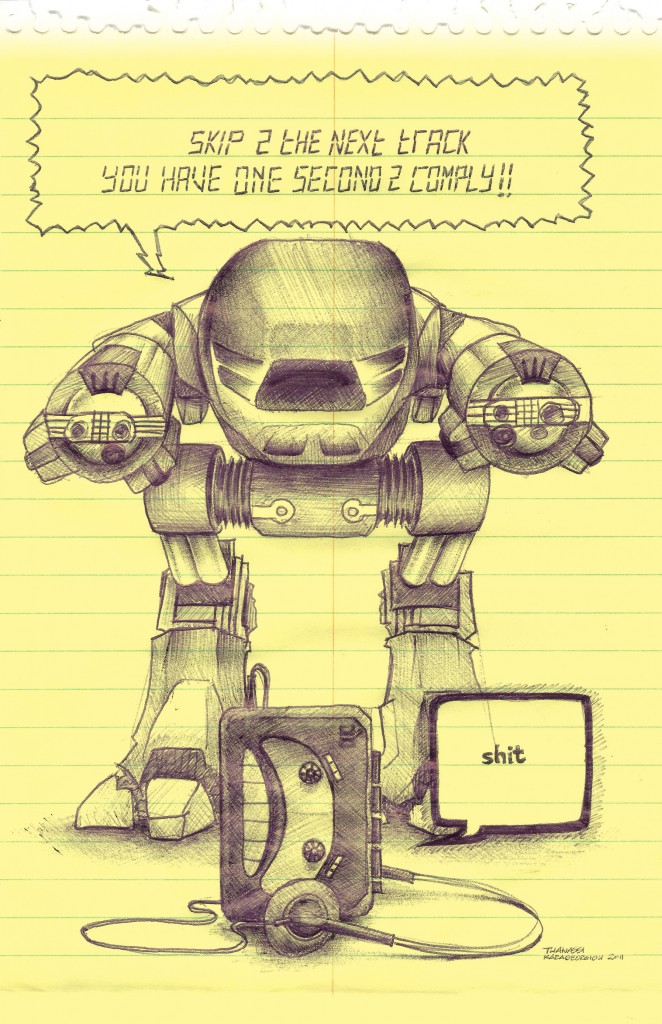Technology has brought tremendous advancements in the production of art and media throughout the years, but the most hyperbolic changes have taken place in the last ten. I want to share with you, my personal views and experiences in the realms of photography, music and motion pictures. In this segment, I’ll discuss music.
I can make the same correlation with music. Before streaming and cloud-based audio, there were mp3’s. Before mp3’s there were CD’s. Before those we had cassettes, and before cassettes there was 8-track, and vinyl. And before vinyl, we had to listen to music live, as it was being made by the artists themselves. From the consumer’s perspective, the technological progress in the music industry has done two things: 1) The navigating, acquiring and listening to a collection of music has become ridiculously efficient. 2) The physical space needed to store one’s music collection has been reduced from X to 0. Where X is a basement full of records, X/2 is a bookcase of cassettes, X/3 is a drawer full of CD’s, X/1000 is an iPod and X/infinity is the cloud. Oh, and 5X would be the concert hall. This is all great for business as the consumer’s level of convenience keeps escalating with each advancement, but what has it done to the music, or more importantly, our perception of it? And what has it done to the hopes and dreams of ambitious young musicians who thought they’d be the next Big Thing?
When I was a freshman in High School, I had a two-hour daily subway commute to and from Brooklyn. My Aiwa walkman was my best friend. Besides the tape loaded in the walkman itself, I often carried 1-3 additional tapes in my backpack. This provided me with a maximum of six hours of music, provided that all 4 tapes were of the 90-minute variety. Other days, when traveling light with only one tape, I still had enough tunes to last me for at least 75% of my commute. When I listened to a tape in its entirety, I simply flipped it and listened to it again from the beginning. Some of us had fancier walkmen with auto-reverse functions, but I had to wait till my senior year to get my hands on one of those. Because track-skipping involved waiting for fast-forward/rewind and was difficult to perform accurately, it was widely regarded as impractical for the most part. Therefore, the majority of us would listen to Artists’ albums straight through, even if we didn’t originally like a particular song that much. (I will note that a few late-model walkmen had a track search feature that detected the gaps between songs and would auto-stop and cue the next track, but the feature had been introduced very late in the walkman’s life cycle as CDs had already picked up a lot of steam) This was a good thing because we listened to an album the way the artist intended, as a story or progression; a melodic roller coaster of moods that reflected the artists’s true feelings. Those not-so-favorite songs would eventually grow on us and become a part of the bigger picture. We formed emotional connections to musicians more so than we would today. We supported them unconditionally and praised their every music video (Back when MTV and VH1 actually played them).
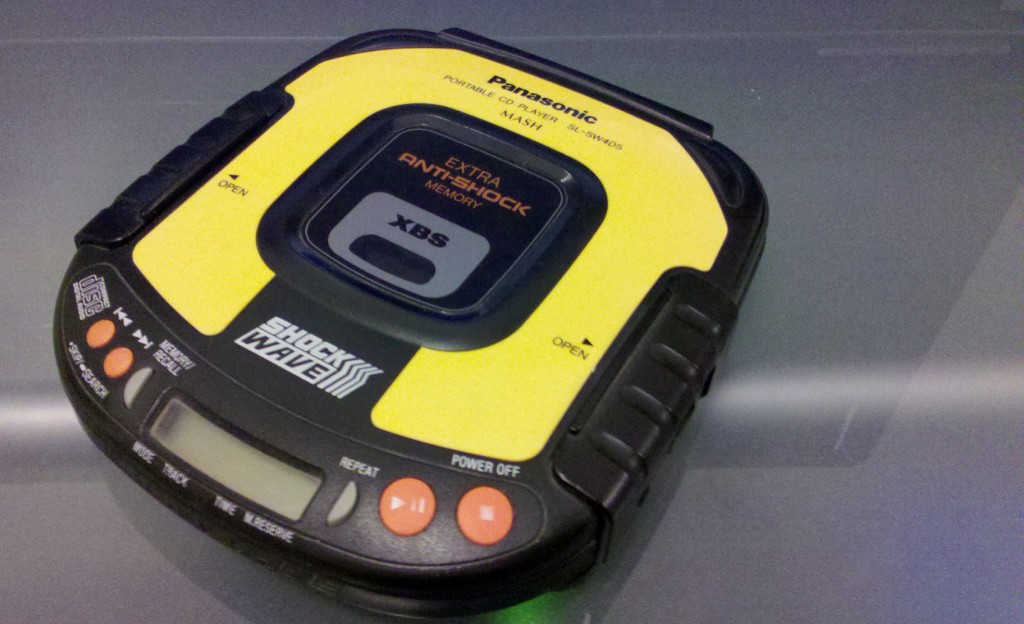
Fast-Forward to The CD Player
The size of the media stayed pretty much the same, but the access and navigation were enhanced. Random-access track selection spoiled the listener. If you didn’t like the second track on the new Wu-Tang album, you simply skipped to the next one instantly. No-waiting, no guessing, just the push of a button and head-bobbing had resumed. What happened there? You skipped a track that you likely skipped again and never give a fair chance. You never allowed it grow on you and let it become part of the linear album experience. Suddenly Wu-Tang went from the hotness to “yea, their new shit is aight“, and because you only liked half the tracks on their album, their credibility was suddenly shot. Granted there have been hundreds of mediocre musicians over the years who saturate half their album with “filler” tracks and interludes, but for the sake of argument, we’re speaking of relevant artists.
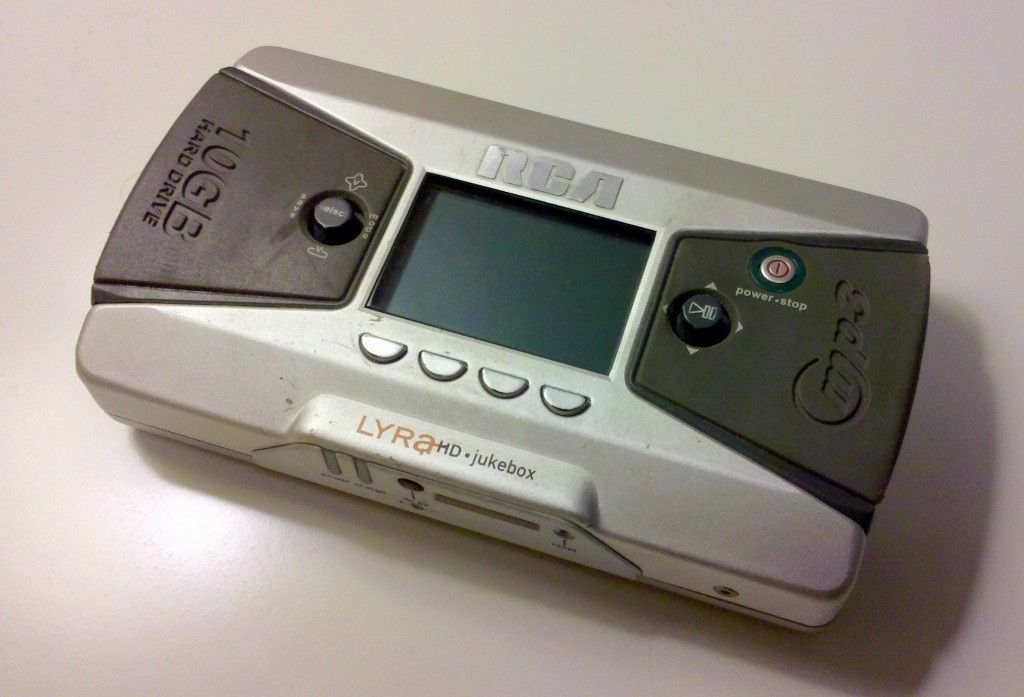
Skip Forward to The mp3 Player
Not only did we have random access, but at roughly one tenth the file size of CD audio, we now also had a dizzying array of new songs at our disposal. We were suddenly carrying thousands of times more music than we’d ever be able to listen to on our commute to school or work. Track skipping turned into album skipping or if you prefer, The Playlist. Here’s a funny thing. If you had to choose a favorite song from every album you’d ever listened to, it might be hard but I bet you could do it. My favorite tracks on The Red Hot Chili Pepper’s Californication are 3.”Scar Tissue” and 11.”The Velvet Glove”. But if I had to pick just one to put in my 90’s Rock Playlist, I’d pick “Scar Tissue”. I’m willing to bet you’ve done the same at some point. This phenomenon has brought the Jukebox into everyone’s palms.
Click over to The Cloud
For about a decade, the iPod was the undisputed king of portable music. Many of you know about the countless hours I’ve spent meticulously cultivating, organizing and tagging my mp3’s. At one point I had lost my entire 60GB collection due to a simultaneous iPod and hard drive failure. I was devastated, but I eventually reacquired all of it and then some. Cumulatively, I’ve probably spent close to two months behind a computer screen, manipulating iTunes. You can call it OCD if you like, but I find great comfort in knowing I can carry and play any song I want at any time. I just like to be prepared. I even had “Panty Dropper” Playlists filled with top-40 songs that women statistically like more, for those special moments. Ok, I still do. Anyway, the point is, in order to become this Master of the iPod, I had to put quite a bit of work into my mp3 collection. But all of that effort just went out the window again. The iPod or portable mp3 player is no longer the center of the mobile listener’s universe. The smartphone has now evolved enough to sufficiently replace a dedicated music player. It just doesn’t make sense to carry two devices around anymore. With dozens of on-demand and streaming services like Pandora and Slacker Radio, you’ll never again be without the music you love. There are even apps that stream your entire iTunes library over the air, either from your own computer, or cloud based storage. While I’m against paying monthly subscription fees to any music service, there are plenty of free ones to satisfy every listener.
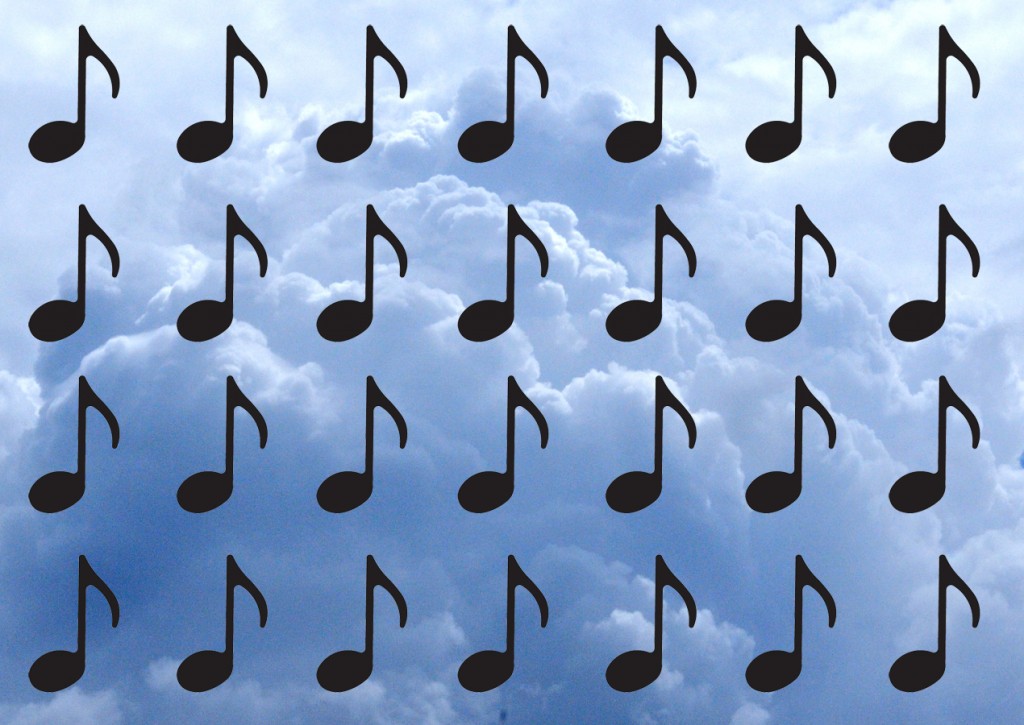
We’ve Come a Long Way Since The Phonograph
So what does this all mean for you as a consumer? It means you’ve got it good and easy. Every song in the world that ever was or ever will be fits in the palm of your hand. It lives in a virtual world, accessible at any time, on demand. A couple taps on your touch screen and there it is, filling your bedroom, your car or your earbuds with your joints. But with easy comes consequence. Easy is also easily disposable. If you have every song, and can summon it instantly, does it’s sentimentality endure? Do you bob your head to it after the 4th time its played on Repeat? Does it still remind you of that trip to the beach you took with your friends in ’96? Probably not as much.
Music, with some help from the rest of your senses crafts memories in your mind. When one of the circumstances of that memory is revisited, the memory is relived for a moment. A familiar song, a tree in the park, an ex-lover’s scent. All of these stimuli transport us to that cherished memory, but when its revisited too often, the memory is blurred, as new and present stimuli interfere with the original script. Whenever I hear the song “My Name Is” by Eminem, I think of a Saturday morning during my freshman year in college, when I first saw the music video, and heard the song for the first time. I was in my friend Matt’s dorm room at Pratt Institute. I can recall many other details about that morning, but as time goes on and I hear that song again and again, the new stimuli erode the old. If I make a conscious attempt to re-visit that Saturday morning in 1999 by playing “My Name Is” in my car while I drive to work every day, I will only be ruining my old memory and fusing the song with my commute. By doing this, I won’t necessarily make new memories, but I’ll surely blur the past and help eradicate an otherwise well-defined era in my life.
“The Wind Cries Mary” by Jimi Hendrix brings me back to January 1998. I was sitting in a window seat on a flight to Albuquerque, New Mexico for a basketball tournament. It was a gorgeous sunny morning. The plane was flying above and through the brightest, puffiest clouds I’d ever seen. The hiss of the dubbed Maxell cassette in my Walkman helped to mask the engine noise. And all I could think about was my High School sweetheart and how freshly in love I was. Flying through clouds 9, 10, 11… etc, with one of Jimi’s slower, more mellifluous tunes helped seal the deal on that memory and that era. Today, if I frequently filled my ears with Jimi Hendrix, I would do myself a disservice by slowly erasing that delightful memory.
My friend Fred is a connoisseur and collector of men’s fragrances. Although he keeps quite a few, he only wears them for a period of time and then moves on to a new one. He might revisit an old one from time to time, but a current scent will always be the default. The period of time a cologne serves him will vary, depending on the season, or significant milestones in his life. Fred is conscious of the great phenomenological impact smell has on memory, and so he uses his fragrances as another tool to help clearly define the eras in his life. An old scent is rarely allowed to invade the present. I also practice a similar philosophy with my scents, although I don’t keep as many as Fred. I limit myself to five or six archival bottles. The less I come encounter scents, the richer my nostalgia will be when I eventually do.
The Music Artist: Technology and The Me-Too! Generation
Everyone owns a fairly capable personal computer these days. Programs like Apple’s Garage Band, Propellerhead’s Reason make it fairly easy for anyone with limited musical training or knowledge to compose and assemble songs in the comfort of their own home. I’ve done it myself. Virtual synthesizers and recording techniques have brought professional music production to the masses affordably. This is great for musical talents who wold not have otherwise been exposed to such tools. Fantastic. Every Tom, Dick and Harry wants to be a star now. They may make a few songs that their close friends and family praise, but they likely won’t be the next Kanye West or John Lennon. The problem is two-fold. Firstly, their friends and family are suppose to be nice and supportive. How easy would it be for you to tell your best friend that the track he spent a week on sucks really hard? Like, ear-bleed hard. Not so easy. You may heavily sugarcoat some “constructive” criticism, when what you really want to say is, “Don’t quit your day job.” Secondly, friends and family are probably new to the idea of a PC based home studio and music production altogether, so however awful the results are, they will still sound semi-decent and enigmatic. It doesn’t matter how much they suck, Tom, Dick and Harry are guaranteed to have at least 3 star-struck groupies.
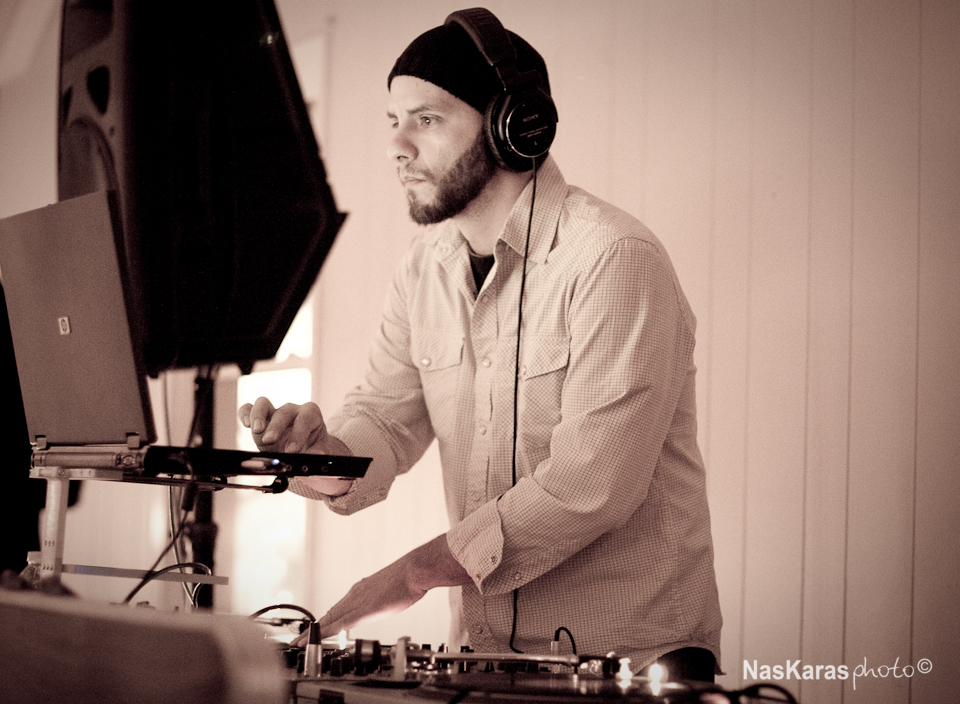
The digital DJ has had the same fortune in his field. The mp3 can now be played and manipulated in exactly the same way as its distant cousin vinyl. through the magic of a laptop and Serato, Anyone with a decent mp3 collection can be a mobile DJ. Gone are the days of lugging around heavy milk crates full of records. All that’s needed now is a flash drive. Convenience has definitely streamlined the workflow of the established DJ, but the market is also overcrowded with Me-Too newbs. By investing only a couple hundred dollars in equipment, you can undercut more experienced DJs by half or even completely. There are 9 to 5 middle-aged husbands with kids who DJ on the weekends and they do it only for the glory.
The luckiest ones in the music industry are the artists and producers that were already established before the digital revolution. Even with all the claimed losses from piracy, they’re still widely known, and have the ability to go on tours, sell merchandise and launch reality shows if they want. Sure, sitting back and collecting royalty checks isn’t what it use to be, but a little extra effort won’t force most of them into a coke habit. They have a marketable brand that endures much longer than Tom, Dick and Harry’s sample mixtape will ever have a chance to, sitting on Joe Schmo Producer’s desk.

